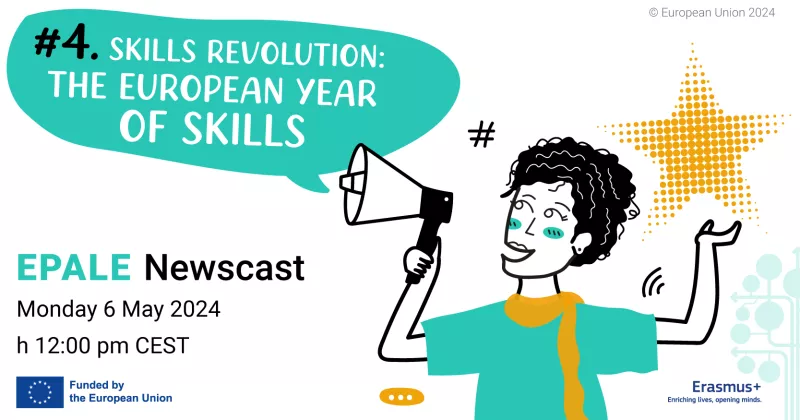How to increase the participation of vulnerable groups in adult education

In the summer of 2004, we organised courses for the National Employment Service. Each group consisted of seven middle-aged unemployed people with a university degree.
B. from Kosovo was one of the participants. We all became close somehow. Not only was I their English teacher, but I also inevitably became the motivational leader of the group.
These people came here full of distrust and without any hope they would learn any English. Their eyes glazed over. None of my jokes were met with a smile, let alone a laugh.
I love my job. I believe that I can shape my students into better people. For me, my class has a certain rhythm. Sometimes, when we are revising, the music is slow, but when we are learning new things with accompanying content – the music is lively and dynamic. I often play some quiet music in class.
Everyone was slowly adjusting except B. Her complexion was grey, her once beautiful green eyes were now sad all the time. I wanted to talk to her, but I was afraid I'd hurt her even more. I wanted to invite her out for coffee, but she was always in a hurry to catch her bus.
Somewhere halfway through the course, she waited for me in the lobby, told me that she had a job interview and asked if I could still mark her as present. Of course, I said yes. She waited for the class to be over next time, told me she was no longer in a hurry and that we could go get coffee in a nearby cake shop.
B. couldn't wait to tell her story. She fled from the Kosovo war with her husband and two children. There, she had held a responsible position of warehouse manager for a large import-export company.
She had had a house. Her children had been good students. Her life was more than decent. When the war began, the activities of the company died down first, and then one day, an Albanian colleague told her to run for her life together with her family because a gang was preparing to set her house on fire. I remember very well that he used the word ''gang'', and told her that not even he was safe, even though he was Albanian. She came home, cried, told her husband what happened, and together they decided to head for Serbia in the middle of the night and sleep in a motel until they found their feet.
They didn't have anyone. She fell asleep in the car and had a dream about a house that had belonged to her long-deceased grandmother. The house had no chimney, but her grandmother told her in the dream ''Don't worry child, you will fix it''. She told her husband to drive straight to that village. She said: ''He was silent, as if he knew''.
She was unemployed for a long time, and her husband was a construction worker. She started this English course to help her daughter who was in the first grade of primary school at the time. She found a job in a butcher's shop and she was happy and grateful as they had meat on the menu twice a week now. There was an abandoned orchard behind her house. They pruned the apple trees, trimmed the orchard as well as they could, and hoped for better days. The course ended and I didn't see her again. I often thought about her, but it wasn't until the beginning of the next school year that she waited for me in front of the staff room with a big bottle of apple juice.
She told me: “I saw you in town with your youngest daughter. She looked a bit pale, so I thought she could use this”.
Even now while I'm writing this, my eyes are filled with tears. My grandma also had to leave Kosovo and start over in a village above town of Medveđa. It's a small world, and destiny connects us with people we can understand without uttering a single word.
When you awaken someone's will to live, you're a winner. Someone who is preoccupied with solving their family's existential issues can hardly accept the fact that learning English can improve something in their life. You need to be careful with such people. Move slowly, at their pace. Let these people know you sympathise with them. Music can help during your classes. Let your lesson serve as an hour of separation from every problem. Interactive teaching involves an exchange of different energies. Make those who are a little behind with their learning as important as fast learners. Highlight good examples only through class exercises. This will help them understand that these difficult circumstances they have found themselves in are transient, that these circumstances should be approached objectively and that they should move forward, step by step, because life overcomes every obstacle.
Cognitive processes imply being acquainted with learning mechanisms. Learning a language means that a teacher is ready to put their knowledge of syntax into practice. You start with simpler syntagmas and move to more complex ones. For example, you must point out the use of prepositions in texts based on verbs of movement. Illustrating a text with a picture is necessary when a unit is focused on grammatical tenses. Apart from that, a teacher must have a basic knowledge of psychology, especially regarding personality types. Furthermore, social trends accompanied with technological advances are changing the division of social personality types. It's up to the teacher to make a good categorisation in the group. A good team leader knows how to use interactive energy for the common goal – achieving the greatest possible level of knowledge at the end of the course.




